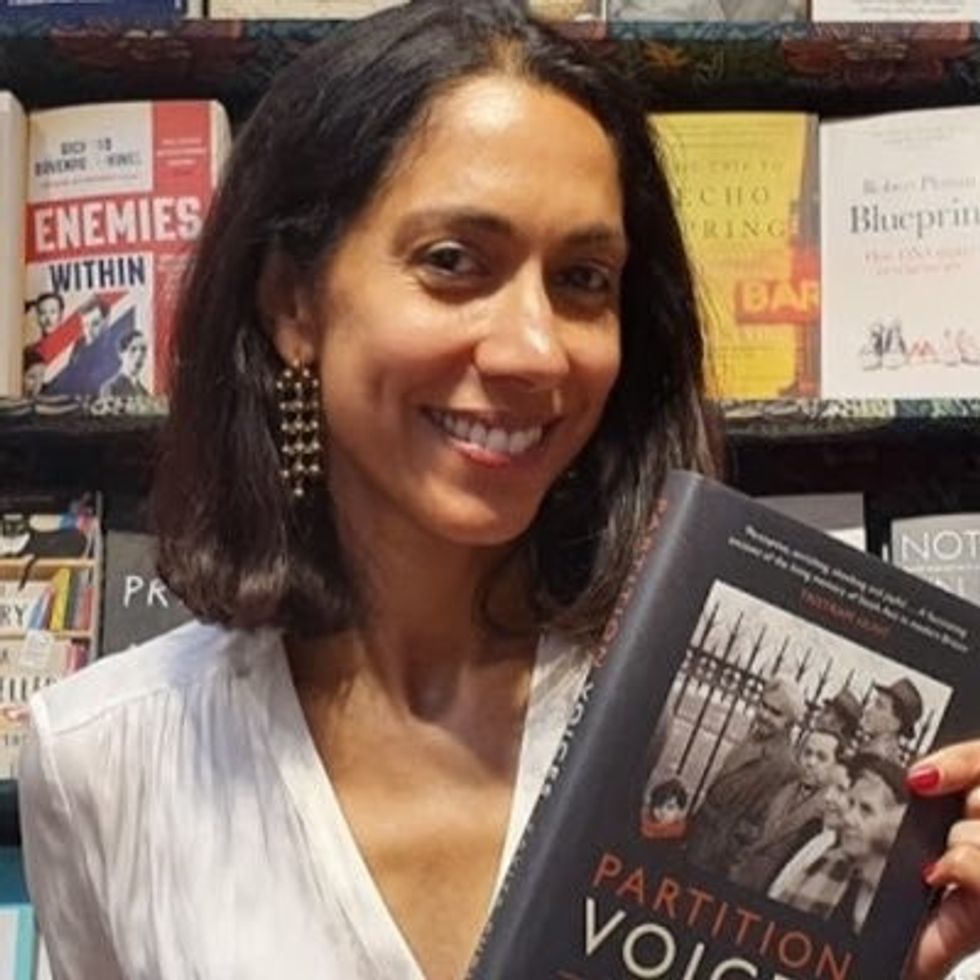While the world remembers the colossal battles and heroes of World War II, another war unfolded far from the spotlight, claiming millions of lives: the Bengal Famine of 1943.
In a powerful new documentary series, Three Million, BBC Radio 4 and the BBC World Service bring to light the devastating human cost of this tragedy, through the unheard stories of those who lived through it.
Award-winning producer and presenter Kavita Puri embarks on a meticulous journey to shed light on this often-overlooked chapter of history.
Eighty years after the famine, she gathers extraordinary first-hand accounts from survivors, farmers, fishermen, artists, soldiers, and everyday citizens, both Indian and British.
This tapestry of voices, many never broadcast before, paints a poignant picture of suffering, resilience, and the fight for survival against an invisible enemy—hunger.
Kolkata, then known as Calcutta, the bustling capital of then Bengal and now West Bengal which also included East Bengal, stood in stark contrast to the silent suffering unfolding in its countryside.
In 1943, while Allied soldiers swarmed the city, preparing for battles on the Asian front, thousands fled from famine-stricken villages, seeking desperately for food. The streets became grim reminders of the crisis, lined with emaciated bodies succumbing to starvation and diseases.

Three Million doesn’t shy away from the complexities of the catastrophe. Puri delves into pre-exiting vulnerabilities that left Bengal’s population on the brink: chronic poverty, stagnant agricultural practices, and exploitative land tenure systems that favoured wealthy landowners over peasant farmers.
The war further exacerbated these vulnerabilities, with Japanese occupation of Burma cutting off rice imports and British policies restricting internal trade, creating a deadly stranglehold on access to food. But the documentary goes beyond statistics and historical analysis. It’s about the human stories that lie at the heart of the tragedy.
We hear from farmers who watch their crops fail and families crumble, fishermen who witnessed the desperation of families bartering away their possessions for a handful of rice, and artists who captured the suffering through their poignant works.
Among these stories is the tale of a girl named Bela, who lost her family to famine and lives on the streets begging for scraps. Or the account of a British soldier stationed in Kolkata. Who was deeply disturbed by the sight of the dying on the streets, a stark contrast to the idealized vision of India he had held.
Though these personal narratives, Three Million compels listeners to confront the uncomfortable truth about the famine. It raises questions about why this tragedy continues to be overshadowed by other events of World War II and why there are no memorials or even a plague commemorating the millions who perished.
It’s not just a historical exploration; it’s a call to remember those Three Million. As Puri emphasizes, the generation that witnessed the famine is dwindling, and it’s crucial to capture their memories but also gain valuable insights into the human cost of war and the fragility of food security, issues that remain relevant today.
Three Million is more than just a documentary; it is a testament of human resilience and a reminder of the enduring impact of the historical tragedies. It urges the audience to listen to the forgotten voices, learn from the past, and ensure that such catastrophes never again become lost chapters in the collective memories of the audience.
Three Million is available on BBC Sounds from Friday 23 Feb, Radio 4 on 25 Feb and World Service English on 2 March

















 Zendaya joins as Felicia in Shrek 5Getty Images
Zendaya joins as Felicia in Shrek 5Getty Images 


 Hattie McDaniel made history, but Hollywood’s racism kept her at the back of the roomGetty Images
Hattie McDaniel made history, but Hollywood’s racism kept her at the back of the roomGetty Images  Marlon Brando’s Oscar protest sent shockwaves through Hollywood, with Sacheen Littlefeather delivering his bold rejection speechGetty Images
Marlon Brando’s Oscar protest sent shockwaves through Hollywood, with Sacheen Littlefeather delivering his bold rejection speechGetty Images  Despite The Godfather’s cinematic brilliance, its original score was deemed ineligible for an OscarInstagram/Godfather
Despite The Godfather’s cinematic brilliance, its original score was deemed ineligible for an OscarInstagram/Godfather  Rob Lowe and ‘Snow White’—the Oscars opening so bad, even Disney suedYoutube
Rob Lowe and ‘Snow White’—the Oscars opening so bad, even Disney suedYoutube A standing ovation for some, silent protest for others—Elia Kazan’s Oscar win divided HollywoodGetty Images
A standing ovation for some, silent protest for others—Elia Kazan’s Oscar win divided HollywoodGetty Images  Adrien Brody shocked the audience—and Halle Berry—with an uninvited Oscar kissGetty Images
Adrien Brody shocked the audience—and Halle Berry—with an uninvited Oscar kissGetty Images  Then vs. Now: From #OscarsSoWhite to historic wins—Hollywood’s journey toward diversity is far from overGetty Images
Then vs. Now: From #OscarsSoWhite to historic wins—Hollywood’s journey toward diversity is far from overGetty Images  Seth MacFarlane’s ‘joke’ fell flat—was this the Oscars’ most cringe-worthy moment?Getty Images
Seth MacFarlane’s ‘joke’ fell flat—was this the Oscars’ most cringe-worthy moment?Getty Images  And the Oscar goes to…’ Oops! The La La Land–Moonlight mix-up that no one will ever forgetGetty Images
And the Oscar goes to…’ Oops! The La La Land–Moonlight mix-up that no one will ever forgetGetty Images  One slap, one stunned audience—Will Smith’s shocking Oscars moment that broke the internetGetty Images
One slap, one stunned audience—Will Smith’s shocking Oscars moment that broke the internetGetty Images